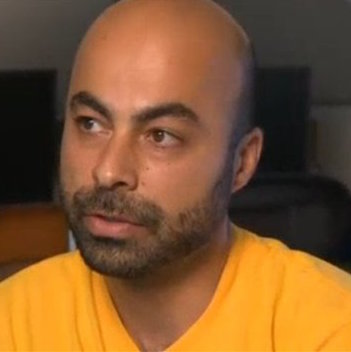Rusul Alrubail heaves a sigh of relief when recounting how she almost made a trip to the States this past weekend for an education conference in Philadelphia. Alrubail, an educator and social justice advocate is Iraqi-Canadian — she arrived in Canada as a refugee in 1996 through Jordan, after fleeing her home country of Iraq during the first Gulf War.“Last year, I attended EduCon in Philly to speak about race, racial violence, policing. It was a great experience, and I was positive I wanted to go back. But after the elections, I had people calling me saying listen, Philly isn’t safe for you as a Muslim woman wearing a hijab. I thought about it, and I decided I wouldn’t go. I was so lucky!”On Saturday, January 27th, U.S. President Donald Trump signed an executive order suspending entry, regardless of a valid non-diplomatic visa, of immigrants from Iraq, Iran, Syria, Libya, Sudan, Somalia and Yemen for 90 days. The travel ban, which has drawn the ire of human rights groups, and sparked protests at airports across the U.S. is the result of Trump making good on his campaign promise to eliminate domestic terror attacks.The collateral damage so far, is widespread.Alrubail and her husband, Mustefa, also Iraqi-Canadian, run a Toronto-based design and marketing tech startup. Their work frequently takes them south of the border. In fact, the work that Alrubail does in the States — conferences, workshops, and advocacy work — is an integral part of her family’s revenue stream. Trump’s travel ban has left them both in the lurch, unable and afraid of attempting to travel to the U.S.According to numbers from the Canadian Manufacturers and Exporters Association, approximately four million people cross the U.S.-Canada border every year for business purposes. A 2012 report by Statistics Canada on U.S.-Canada business travel stated that each quarter, Canadian business travellers spend a total of $673 million on American goods and services. Chances are, this number has increased significantly in the last five years.“What we need is for the U.S. to recognize that geographical borders are not an issue. Toronto is one of the fastest growing technology and startup hubs in the world — this is an opportunity to engage with and benefit from organizations like ours, not prevent us from entering,” says Mustefa.Although the Trudeau government recently confirmed that Canadians with dual citizenship will not be turned away at the border, Alrubail has her doubts.“My passport is Canadian, but it states that I’m born in Iraq. I wear a hijab. Often, I’m the only Muslim in the airport line-up. I’ve been selected for random checks before, and that was before Trump. I don’t want to take the risk of putting myself through all this — it’s demeaning.”Alrubail is just one of many Canadians caught up in this mess, for no reason other than hailing from a country that America deems a “terrorist threat”. Ali Bangi is another.Bangi moved to Canada from Iran more than a decade ago to pursue a Masters in Engineering at the University of Toronto. His work in the privacy software space led him to create ASL19, a small tech start-up based in Toronto that provides online tools to bypass internet censorship in countries like Iran and Syria, where the government frequently cracks down on website accessibility. Many of ASL19’s employees hail from the Middle-East, and will be directly affected by this ban. Bangi and his colleagues frequently travel to the States (at least once a month) for work-related meetings and conferences. Though Bangi holds a Canadian passport, he’s vowed not to enter the U.S. until the travel ban is lifted.“Quite a few of my friends, colleagues, family members cannot go to the States. They need visas to enter. It just doesn’t feel right for me to go. It doesn’t fit the culture of freedom, fairness and integrity that we want to establish at our company,” Bangi told VICE Money.Last year, ASL19 hosted the Iran Cyber Dialogue, an annual global conference on technology and free expression in San Francisco. The conference attracted hundreds, providing substantial revenue for hotels, bars and restaurants in the vicinity. Bangi has decided that in future, he will not organize the Iran Cyber Dialogue conference in the States.“It’ll be less business for American airlines, less business for American hotels. I’m okay with that,” he says.Trump’s hastily ordained travel ban aimed at Muslims from seven countries, has left those hailing from other Muslim-majority nations intending to travel in and out of the U.S., in complete confusion.Naira Saeed is in her final semester of an MBA program at Harvard Business School. She was born in Pakistan, but holds Canadian citizenship. Her ties to the U.S. are strong and impressive — an undergraduate degree from Wharton Business School at the University of Pennsylvania and years at a top Wall Street investment bank. She attended the protests in Boston over the weekend, angry, and afraid of her status as a Pakistani-Muslim, with a U.S. student visa.
Many of ASL19’s employees hail from the Middle-East, and will be directly affected by this ban. Bangi and his colleagues frequently travel to the States (at least once a month) for work-related meetings and conferences. Though Bangi holds a Canadian passport, he’s vowed not to enter the U.S. until the travel ban is lifted.“Quite a few of my friends, colleagues, family members cannot go to the States. They need visas to enter. It just doesn’t feel right for me to go. It doesn’t fit the culture of freedom, fairness and integrity that we want to establish at our company,” Bangi told VICE Money.Last year, ASL19 hosted the Iran Cyber Dialogue, an annual global conference on technology and free expression in San Francisco. The conference attracted hundreds, providing substantial revenue for hotels, bars and restaurants in the vicinity. Bangi has decided that in future, he will not organize the Iran Cyber Dialogue conference in the States.“It’ll be less business for American airlines, less business for American hotels. I’m okay with that,” he says.Trump’s hastily ordained travel ban aimed at Muslims from seven countries, has left those hailing from other Muslim-majority nations intending to travel in and out of the U.S., in complete confusion.Naira Saeed is in her final semester of an MBA program at Harvard Business School. She was born in Pakistan, but holds Canadian citizenship. Her ties to the U.S. are strong and impressive — an undergraduate degree from Wharton Business School at the University of Pennsylvania and years at a top Wall Street investment bank. She attended the protests in Boston over the weekend, angry, and afraid of her status as a Pakistani-Muslim, with a U.S. student visa. “It’s very depressing for me in the grand scheme of things. Harvard sent us a note asking us to decide if travel outside the U.S. is really necessary right now. My immediate thought, although it seems trivial right now, was that my (Canadian-based) parents might not be able to make my graduation this summer,” Saeed told VICE Money.Saeed emphasizes that she does not intend to live in the U.S. in the long-run. “Trump’s immigration policies could change on a whim. I’ve heard it’s going to get much harder to obtain a H1-B visa. The overall sentiment is that it’s just going to get much harder for people like me to live here. I don’t want to be part of any of this.”Just yesterday, White House spokesperson Sean Spicer hinted at adding Pakistan to Trump’s travel ban list. “Why not Pakistan,” Spicer said, during an appearance at George Washington University.Two of the richest American companies are led by immigrants — Microsoft CEO Satya Nadella and Google CEO Sundar Pichai both hail from India. Pakistani businessman Shahid Khan, worth $7.5 billion, owns automobile parts manufacturer Flex-n-Gate, an NFL team, and an English Premier League football team. The list goes on.The success of highly-qualified, Ivy League-educated graduates like Saeed, who grew up in Pakistan, were once the very definition of the American Dream — the hard-working immigrant who made it big. Now, graduates like Saeed, are viewed by Trump and his supporters as a threat to the American worker, the “foreign other” who is hellbent on stealing American jobs.“People need to look at us as humans. As individuals,” says Rusul Alrubail, teary-eyed from the reality of the situation.“If you look at me now and what I’ve accomplished, no one would have ever figured that I was an 11-year old Iraqi refugee who fled from war back in 1994. We are just people. All I ask is for them to recognize that.”Follow Vanmala on Twitter
“It’s very depressing for me in the grand scheme of things. Harvard sent us a note asking us to decide if travel outside the U.S. is really necessary right now. My immediate thought, although it seems trivial right now, was that my (Canadian-based) parents might not be able to make my graduation this summer,” Saeed told VICE Money.Saeed emphasizes that she does not intend to live in the U.S. in the long-run. “Trump’s immigration policies could change on a whim. I’ve heard it’s going to get much harder to obtain a H1-B visa. The overall sentiment is that it’s just going to get much harder for people like me to live here. I don’t want to be part of any of this.”Just yesterday, White House spokesperson Sean Spicer hinted at adding Pakistan to Trump’s travel ban list. “Why not Pakistan,” Spicer said, during an appearance at George Washington University.Two of the richest American companies are led by immigrants — Microsoft CEO Satya Nadella and Google CEO Sundar Pichai both hail from India. Pakistani businessman Shahid Khan, worth $7.5 billion, owns automobile parts manufacturer Flex-n-Gate, an NFL team, and an English Premier League football team. The list goes on.The success of highly-qualified, Ivy League-educated graduates like Saeed, who grew up in Pakistan, were once the very definition of the American Dream — the hard-working immigrant who made it big. Now, graduates like Saeed, are viewed by Trump and his supporters as a threat to the American worker, the “foreign other” who is hellbent on stealing American jobs.“People need to look at us as humans. As individuals,” says Rusul Alrubail, teary-eyed from the reality of the situation.“If you look at me now and what I’ve accomplished, no one would have ever figured that I was an 11-year old Iraqi refugee who fled from war back in 1994. We are just people. All I ask is for them to recognize that.”Follow Vanmala on Twitter
Advertisement
Advertisement
Boycotting America

Advertisement
Brain Drain

Advertisement